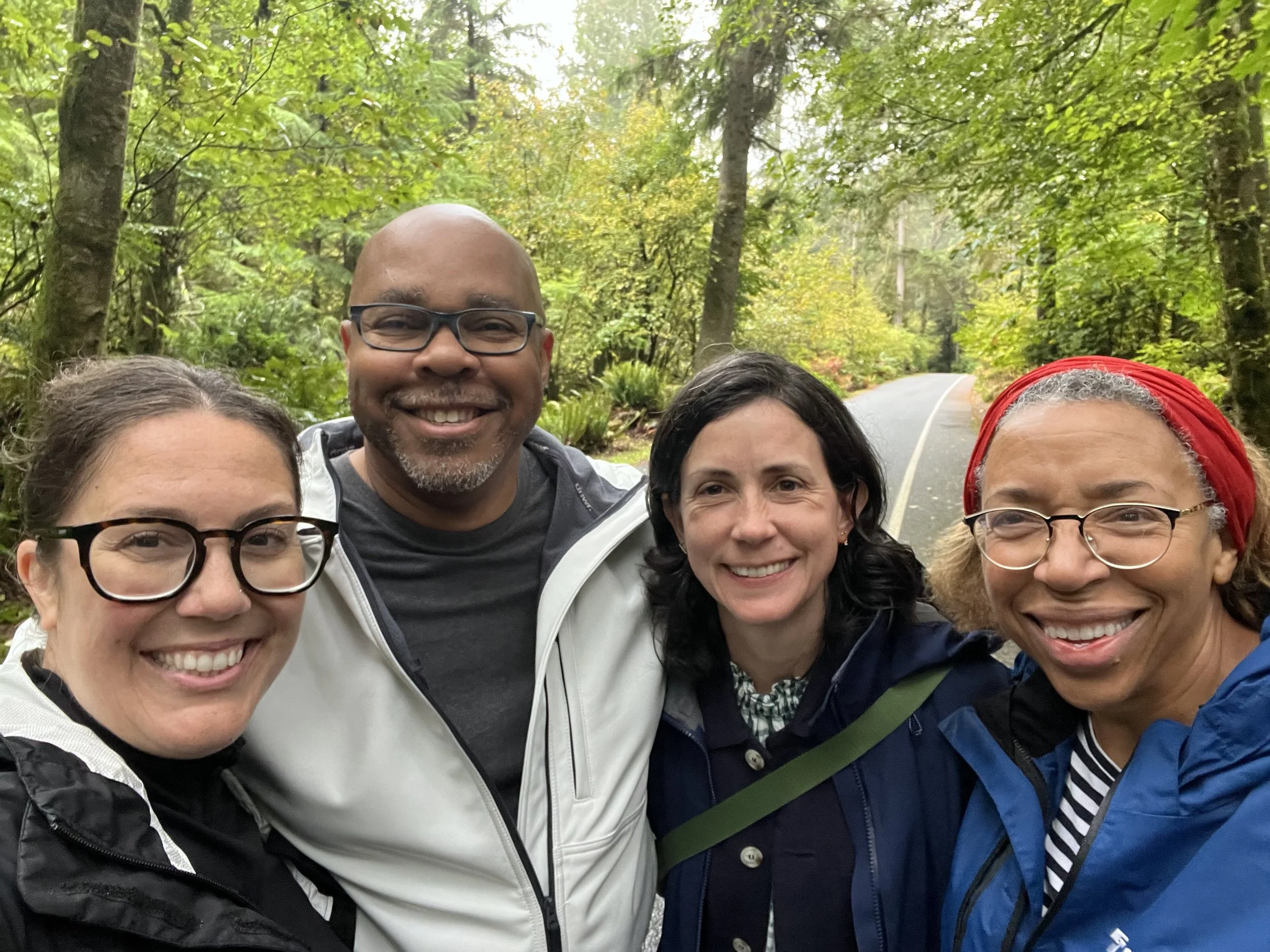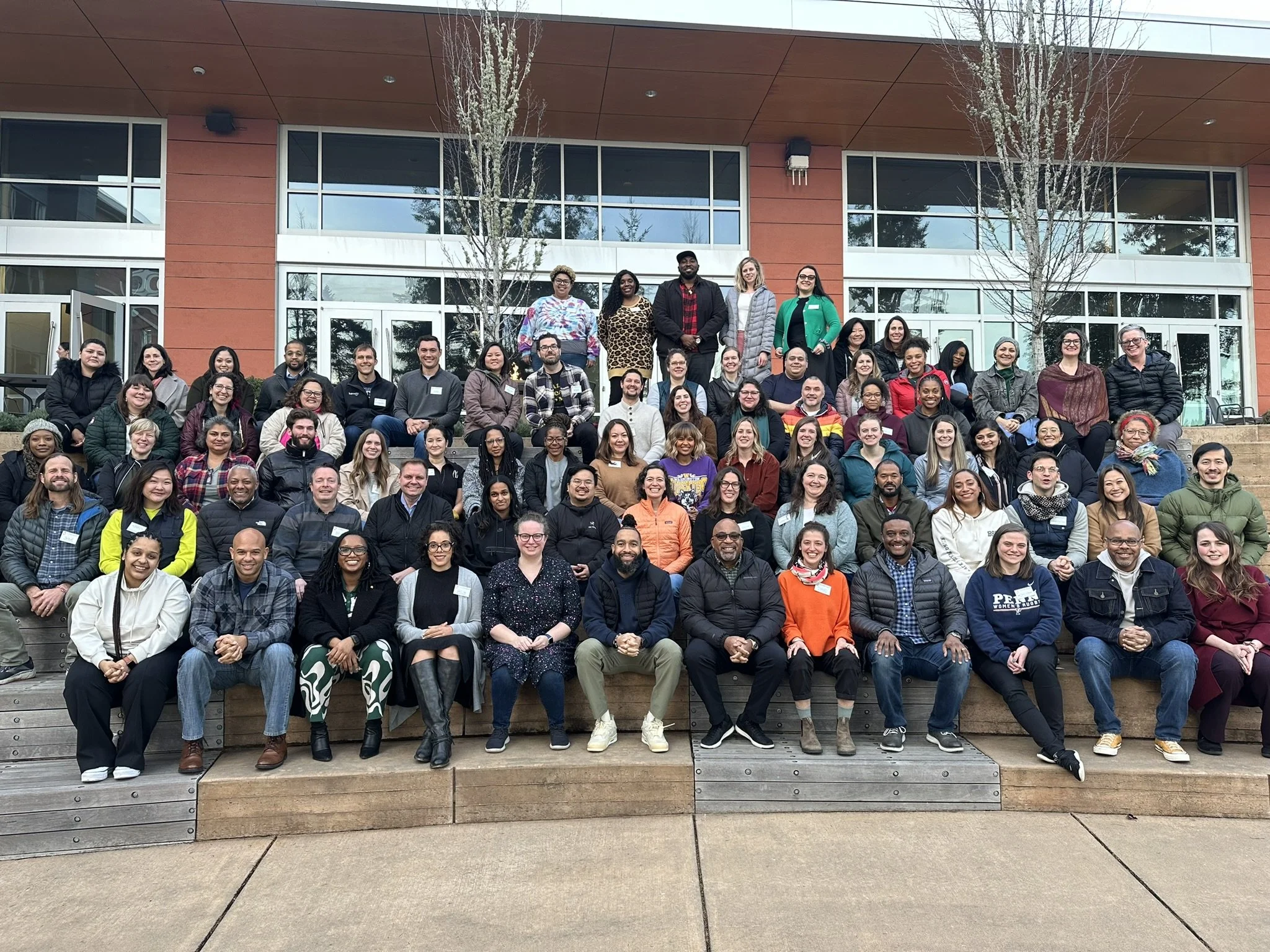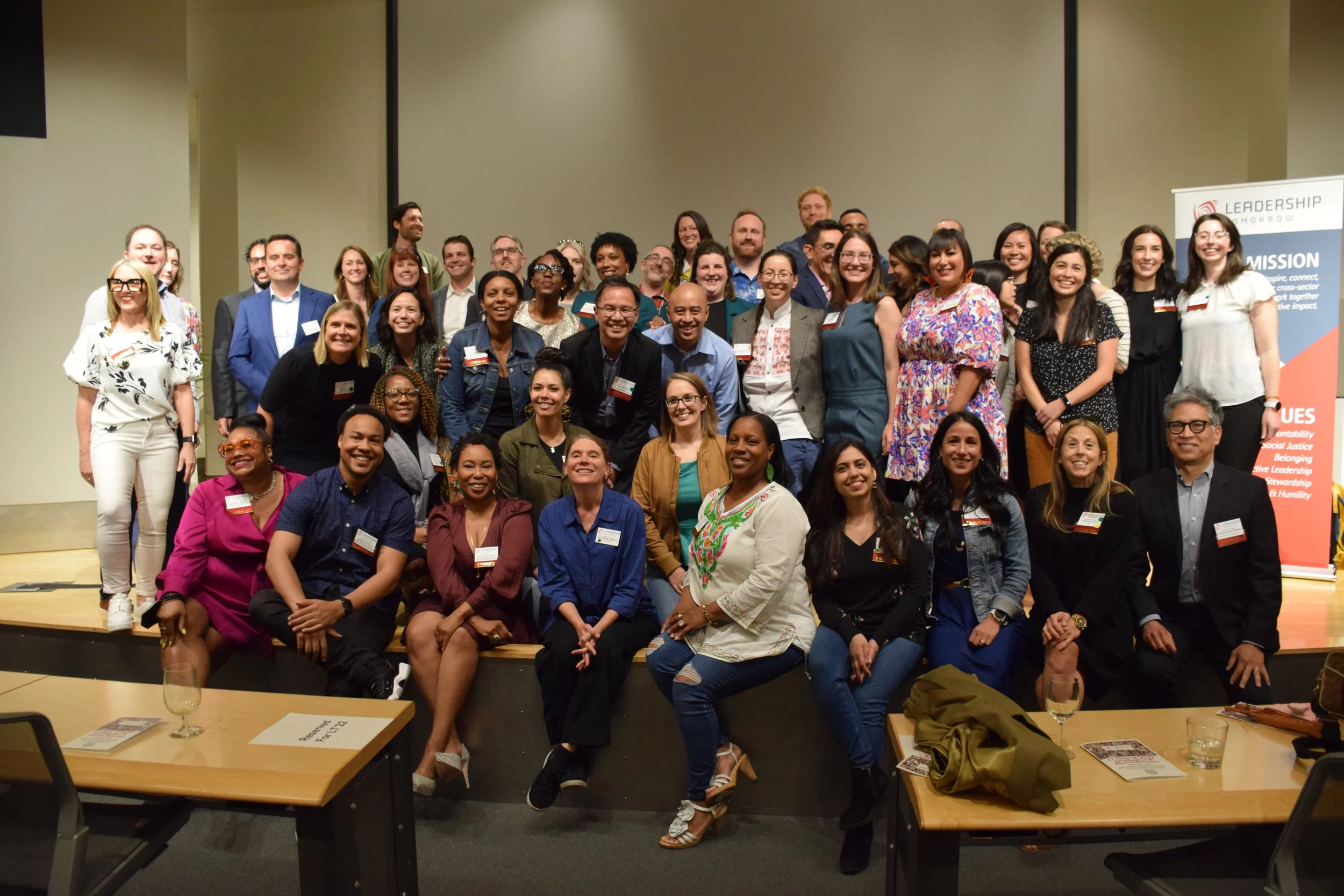K. Darrow Brown, LT'24
Reflections from the Current Class: K. Darrow Brown, LT’24
Engaged leadership is the foundation of thriving communities.
For 40 years, Leadership Tomorrow has worked at the forefront of civic engagement to cultivate a network of inclusive, courageous, and curious leaders across Puget Sound. As we celebrate this special milestone, we are proud to highlight stories from LT alumni who continue to shape our region into a vibrant, vital community where all can thrive. Explore moments from their leadership journeys, past and present, as we consider collectively what challenges and opportunities lay ahead in the next 40 years—and beyond.
Photo from left to right: Ranna Daud, LT’24, Darrow Brown, LT’24, Nora Strang Moore, LT’24, Glo Hatch, LT’24
How has LT influenced your approach to leadership?
One takeaway from my experience of Leadership Tomorrow is a reminder that I – by far – am not the smartest person in the room. LT'24 is a collection of passionate, committed, and brilliant humans. This reminder has been instrumental in how I convene, facilitate, and lead. I am not the best and brightest, and I don’t have to be.
How has your experience in LT contributed to your understanding of the region’s challenges and opportunities?
Having moved from Baltimore, MD in 2018, I still consider myself new to the area. Prior to LT, my understanding and navigation of the region had mainly been around the edges and from a 30,000-foot view. LT has provided the opportunity to move from the edges toward the center and zoom in…and empathize. From a human-centered design perspective, empathy – the first of five design stages – is key in designing solutions that attend to the needs of those affected by the challenges. I feel more prepared and excited to engage in this region now that I have this deeper understanding.
Why do you think LT is important in 2024 and for the next 40 years?
I think LT and similar organizations are the antidote for chronic individualism. Accumulation. Success. Wealth. Power. These are shiny and intoxicating things, but they don’t necessarily contribute to the common good. What I appreciate about LT is the intentional and ongoing focus on the collective. It’s hard to imagine fostering needed changes to systems and structures if we rely on any one individual to move things in a positive direction.
Darrow with his LT’24 classmates at the Mid-Year Retreat
Have you experienced any unexpected benefits from the program?
Is this question a plant? Did Shomari Jones put this question here?! Is he trying to make me cry again? (Readers, please read those last two sentences with a tone of humorous suspicion for the full effect!)
One of my favorite people, Vivek Murthy, U.S. Surgeon General, has spoken and written extensively about what he considers the epidemic of loneliness, isolation, and lack of social connections in and amongst people in the U.S. Since my 2018 move from the mid-Atlantic, where I had been for 25 years and where I had been a member of several lively communities, I have openly acknowledged that I am one of the statistics Vivek Murthy talks about. I made this acknowledgment upon my arrival at LT'24 in September 2023. For me, it was a time of deep loneliness and increasing regret about my choice to move across the country.
Like collectivism can be the antidote to rampant individualism, Leadership Tomorrow has been the antidote to my loneliness. Yes, LT helps leaders develop the awareness, skills, and competencies to be better equity-focused leaders. It also helps cohort members make connections and develop meaningful, hopefully lasting relationships. The former was expected. The latter is a complete and very welcome surprise.













